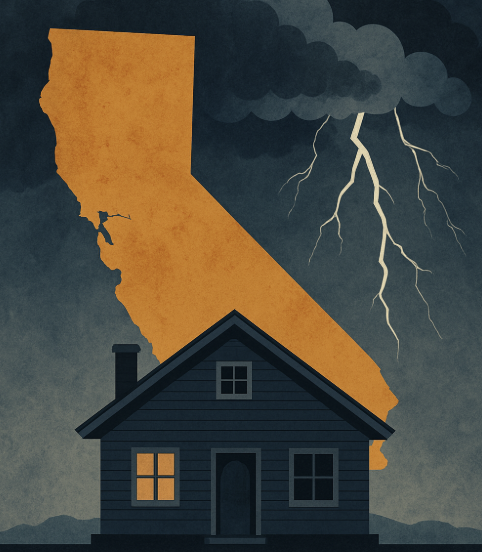Why California Should Pay Attention: Federal Shutdown Could Pressure Our Housing Market Next
While much of the nation is watching Florida struggle with the impacts of the federal government shutdown, California shouldn’t assume we’re immune. The same forces disrupting housing on the East Coast—frozen flood insurance, stalled federal loans, and delayed construction permits—could easily shift west and affect our already complex market.
Real estate plays a massive role in both states, but in California, where affordability, insurance challenges, and inventory shortages are already at critical levels, any additional disruption could quickly ripple through the market.
Insurance Delays: A Familiar Risk for California Homeowners
Florida’s immediate crisis centers around the lapse in the National Flood Insurance Program (NFIP). In California, we face our own parallel issue—wildfire insurance. With major carriers already pulling out or raising premiums, any federal delay that stalls FEMA, disaster assistance, or insurance renewals could push more transactions into limbo.
If the shutdown continues, we could see:
Closings delayed in high-risk fire zones
Buyers unable to secure required insurance to finalize a purchase
Sellers forced to extend escrow or relist their homes
California’s coastal and wildfire-prone communities are especially vulnerable.
Federal Loans on Pause: Hitting First-Time and Rural Buyers Hard
FHA and USDA loans are crucial in California’s inland and rural regions—from San Diego County to the Central Valley and northern foothills. These programs support thousands of buyers who can’t qualify for conventional financing.
With agency staff furloughed:
New approvals are delayed or halted
Appraisals and final underwriting can’t proceed
Escrows risk cancellation if rate locks expire
In a state where affordability is already strained, this loss of financing access could significantly cool buyer activity.
Construction and Permits: The Next Bottleneck
Just like in Florida, California’s new construction depends on federal environmental reviews—especially under the Clean Water Act and Army Corps of Engineers guidelines for wetlands, waterways, and protected land.
With these agencies operating at minimum capacity:
Housing projects could be stalled before breaking ground
Developers may pull back due to uncertainty
Inventory relief could be delayed, worsening our long-standing housing shortage
California already needs more than 2 million additional housing units to meet demand. Any pause in construction only widens the gap.
A Warning Sign, Not Just a Florida Problem
Economists warn that Florida’s slowdown could be a test case for what happens nationwide if the shutdown continues. And because California is one of the largest and most influential housing markets, a shift here would make national headlines.
Even a temporary interruption—like delayed permits or stalled FHA closings—can affect:
Local job markets
Consumer confidence
Home prices and inventory levels
The Bottom Line for California
A federal shutdown may feel far away, but its effects are anything but distant. From fire insurance to FHA loans, California is deeply tied to federal housing support. If disruptions spread west, our market could feel the strain quickly.
For California homeowners, sellers, and potential buyers, this is the moment to stay proactive, not reactive. Understanding how policy impacts real estate isn’t just smart—it’s essential.



